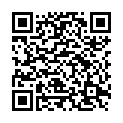|
|
|
| Module code: MST201 |
|
2V+1U+4PA (7 hours per week) |
|
7 |
| Semester: 2 |
| Mandatory course: yes |
Language of instruction:
German |
Assessment:
Written exam, project work
[updated 23.07.2012]
|
MST201 Mechatronics and Sensor Technology, Bachelor, ASPO 01.10.2005
, semester 2, mandatory course
|
105 class hours (= 78.75 clock hours) over a 15-week period.
The total student study time is 210 hours (equivalent to 7 ECTS credits).
There are therefore 131.25 hours available for class preparation and follow-up work and exam preparation.
|
Recommended prerequisites (modules):
None.
|
Recommended as prerequisite for:
|
Module coordinator:
Prof. Dr.-Ing. Barbara Hippauf |
Lecturer: Prof. Dr.-Ing. Barbara Hippauf
[updated 01.10.2005]
|
Learning outcomes:
Students will be expected to actively acquire an understanding of the topics covered in this course. After completing the course, they will have a firm command of the fundamentals and be able to apply them.
[updated 23.07.2012]
|
Module content:
Magnetic fields; sources of magnetic fields; comparison of magnetic and electric fields; electromagnetic induction; magnetism in matter, a.c. circuits; transformers, rectifiers.
Temperature; heat; heat transfer; internal energy; first law of thermodynamics; heat engines; the second law of thermodynamics.
[updated 23.07.2012]
|
Teaching methods/Media:
Lectures, lab course, group work
[updated 23.07.2012]
|
Recommended or required reading:
Paul A. Tipler: Physik
Hering, Martin, Stohrer: Physik für Ingenieure
Lecture notes, articles, etc.
[updated 23.07.2012]
|


